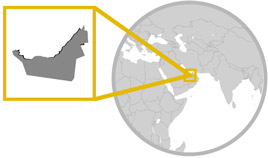Money
The currency of Nigeria is the Naira, 1 Naira can be subdivided down into 100 Kobo. The Naira’s International Currency Code is NGN and 10 Naira is equal to about $0.06 or £0.04.
Coins are available in 1, 2, 5, 10 and 20 Kobo variants.
Bank Notes are available in 5, 10, 20, 50, 100, 200, 500 and 1000 variants.
Economy
Nigeria’s GDP is currently at around $510 Billion a year and mainly trades in Oil, Raw Metals and Minerals, Construction Materials, Processed Metals and Agricultural Products with minimal Processed Goods. Nigeria’s main trading partners are the United States (16.8%), India (12.1%) and the Netherlands (8.6%).
Nigeria’s biggest export is in Crude Petroleum, of which around 78% of all exports are made. To add to this, around 9% of all exports are in Petroleum Gas and 8% are Refined Petroleum, making around 95% of all exports in Oil.
Banking
Nigeria’s banking sector is as advanced as many western countries and a range of banks including many international banks are available throughout the country. Additionally, ATMs are available but typically both ATMs and Banking Services are only accessible in urban areas, so means of transporting money may need to be considered in some cases.
Accounts are available in two types like the ones in the west, these include the Current Account which offers quick accessibility to savings but offers a minimal interest rate, and the Savings Account which typically has less accessibility to savings but offers much higher interest rates.
Taxes
Nigerian residents are liable for Income Tax and Social Security.
Income Tax is applied on all Nigerian residents’ worldwide income and an individual is considered a Nigerian resident if they have stayed in the country for more than 183 days in a 12 month period. This includes salaries, wages, fees, allowances, pensions, bonuses, premiums, noncash benefits, gratuities, self-employment income, investments, dividends, interest, royalties, director’s fees, capital gains and amounts derived from the disposition of capital assets from land and buildings, options, debts and other property rights, any currency other than the Nigerian currency, any form of property created by the disposing person or otherwise coming to be owned without being acquired and movable assets including motor vehicles.
All residents have a Personal Allowance of NGN 200,000 (about $1,230 or £730) but are taxed at set intervals on allowance:

